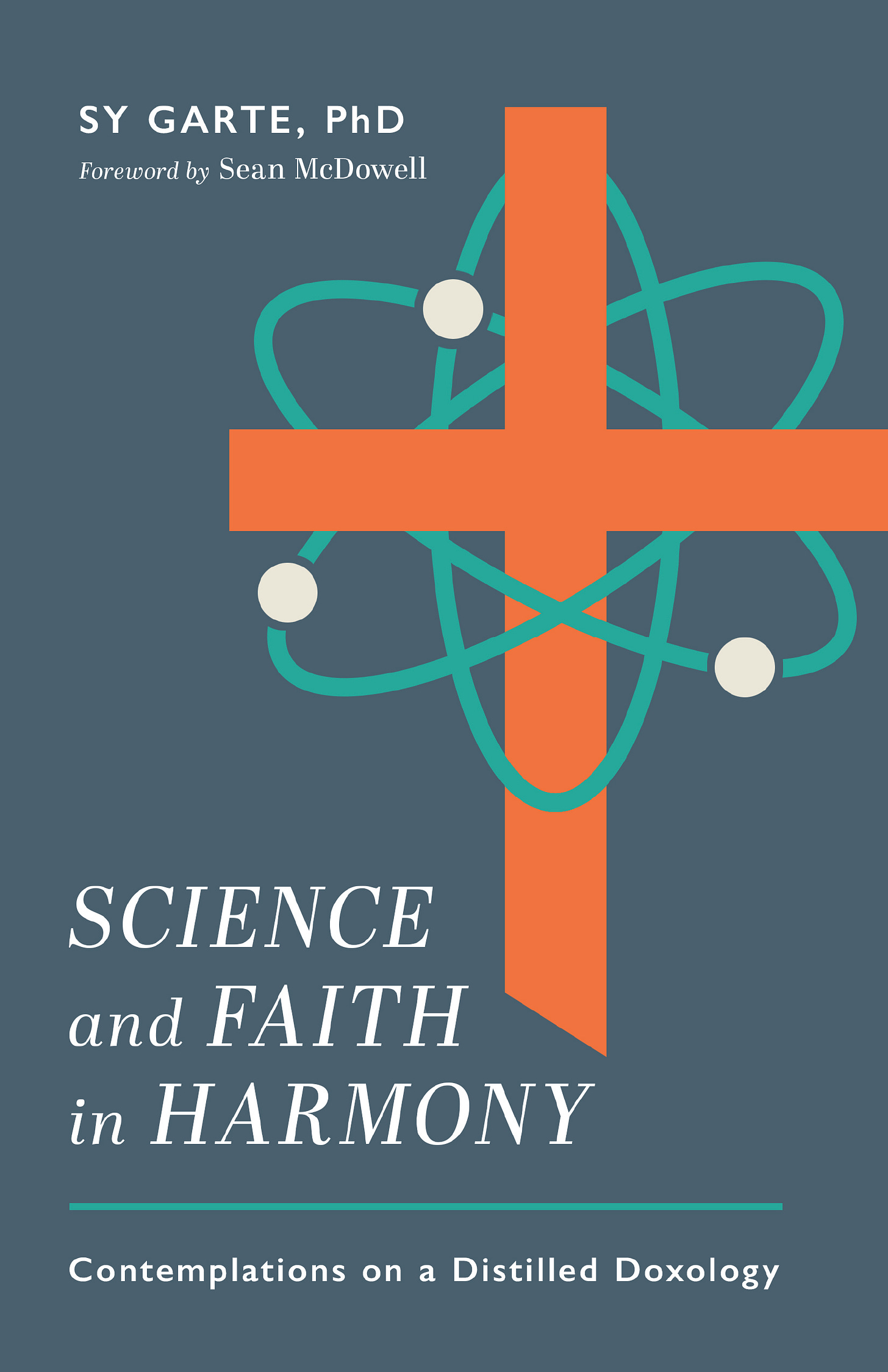The Significant Blue Dot
By Sy Garte
“Thus the heavens and the earth were finished, and all the host of them.”
GENESIS 2:1
“We live on an insignificant planet of a humdrum star lost between two spiral arms in the outskirts of a galaxy … tucked away in some forgotten corner of a universe in which there are far more galaxies than people.”
CARL SAGAN
In recent decades, a popular idea has been floating around that the human race and the planet and galaxy where we live are nothing special or significant. This idea is usually connected to how immensely huge the universe is. The common presentation dazzles us with how many billions of galaxies there are, each with billions of stars and planets, followed by the question, Doesn’t that make you feel small? Insignificant? Maybe even worthless?
Consider that planet Earth is just one tiny speck in the solar system in our galaxy. Should this make a human being feel like an ant that has somehow discovered that the patch of backyard she knows so well is a minuscule part of an enormous landscape filled with so many unknown creatures and objects? I don’t think so at all. I feel instead quite blessed to be on this single, beautiful blue dot in the enormity of the cosmos.
When people claim that there must be millions or billions of advanced civilizations in the universe, I often hear a subtext: Why should anyone think humans are special? And sometimes I hear a sub-subtext: Finding other life in the universe will put a nail in the coffin of theism, because it will show that the creation text in the Bible is wrong.
I don’t agree. The size of the universe does not affect how I feel about myself or my fellow humans. Maybe it’s because I was born and raised in New York City, and standing on a midtown street watching hundreds of people pass me every minute doesn’t faze me. I’m curious, though, why we might assume that size is directly proportional to value. Calling the Earth small is meaningless—in fact, if it were much larger, we couldn’t be here (see below). Earth’s placement in the galaxy is precisely where it needs to be; if we were in the center of the galaxy, life would have been immediately destroyed by the intense radiation from nearby stars.
Some Christians are concerned that we might find intelligent life elsewhere because it would raise questions about whether such intelligent life has souls. That in turn would raise questions about the image of God and the nature of Jesus Christ, and whether such beings are candidates for salvation. I know other Christians, including some astronomers and astrobiologists, who dismiss these worries and are confident that we will be able to accommodate other intelligent life into our belief system. I don’t know enough theology to have an opinion. What I do know is that my skepticism is based not on any theological concerns but purely on science.
You might ask what kind of science suggests our planet is no ordinary lump of rock orbiting a star and why I’m skeptical that the huge number of planets means intelligent life is likely elsewhere in the universe. The answer is, for a planet to host life of any kind, a great many requirements must be met. And there are even more for it to support multicellular, large-brained, intelligent life.
A partial list of the requirements for such a planet includes:
a rocky crust with liquid water to permit water-based and land-based life;
a near-circular orbit for regular stable seasons;
a single (not a dual or multiple) star to allow for regulation of temperature and climate;
a roughly Earth-size mass so the gravitational field does not prohibit large creatures but is strong enough to keep life forms stably grounded;
a molten core to allow for a magnetic field, which is required for protection of the planet from harmful radiation;
a large nearby planet with a gravitational field strong enough to attract most meteors and asteroids;
a large moon to stabilize planetary rotation;
a plate-tectonic crustal environment to allow for continent formation, and the circulation of nutrients required for life;
an atmosphere containing biatomic, molecular oxygen similar to that of Earth. Oxygen-based metabolism is far more efficient than any form of non-oxygen-based metabolism and is required for complex multicellular life forms. This kind of oxygen (O2) is only produced as a by-product of the metabolism of certain rare unicellular organisms.
This is only a partial list of some of the rare, special requirements needed to support life. You can find a comprehensive treatment in Improbable Planet by Hugh Ross.
Even if there are intelligent, civilized “aliens” on any of the other planets out there, I would be very surprised if we could ever have any contact with them. Most such planets, even within our own galaxy, would be too far away, for even the most highly advanced civilizations still wouldn’t be able to exceed the universal speed limit for light. So if (science fiction notwithstanding) we ever did get a message from them, it would be millions of years old—and our answer would take just as long for them to receive. That’s not a great way to have a meaningful conversation.
All this science aside, my general answer to the question of extraterrestrial life is, So what? I don’t know what’s out there, but I do know what’s here on this blue planet called Earth. I have seen some of it in real time, and a lot more in photos and films. There are impressive mountains, powerful rivers, vast oceans, wonderful birds, beautiful flowers, and all kinds of creatures. We have thunderstorms and sunny days and volcanoes. And people are here, and I happen to like people a lot—a lot more than I like frozen planets, or gas planets, or sterile planets with craters or liquid water.
I am here, and so is the love of my life. So are you, and so are many other humans I can call my friends. Sometimes we can help others out, and sometimes they help us out. Most of all, sometimes people make us feel very special, worthwhile, and significant. And that’s something a billion galaxies can’t ever take away.
— Dr. Sy Garte is a biochemist and has been a professor at New York University, University of Pittsburgh, and Rutgers University. He has authored over two hundred scientific publications and four previous books, and has served as division director at the National Institutes of Health. Sy is also the editor in chief of God and Nature magazine and vice president of the Washington, DC, chapter of the American Scientific Affiliation. He is a lay leader in the United Methodist Church.
Image by PabloEsteban from Pixabay
---
Excerpted from Science and Faith in Harmony: Contemplations on a Distilled Doxology by Sy Garte (Kregel, 2024). Used by permission.
“Sy Garte has a gift for winsomely demonstrating the truth and goodness of the gospel message. His extensive knowledge of scientific issues enables him to deftly explain how advanced processes in molecular biology provide evidence for the Creator and his intimate care for us. Sy's insightful chapters in Science and Faith in Harmony will keep you engaged as you learn more about how God's voice is revealed in his creation.”
— Lee Strobel, best-selling author of The Case for Christ
Find Science and Faith in Harmony at Amazon, Christianbook.com, and other major booksellers.
*sponsored post



The Christian Worldview has, as central to all things, the death, burial, and resurrection of Jesus Christ. The historical evidence for these things is overwhelming, so let’s not waste time arguing about their veracity.
But let us consider this amazing reality. In order for Jesus to live and die, if that is, as I believe it to be, the purpose of the Incarnation, then there needs to be a stable planet for Christ to come to. A stable planet requires a stable and particular type of star, with the accoutrements of the various other planets and satellites in place. A stable star needs the support of a stable galaxy. It cannot live in isolation. It is no stretch to believe that a stable galaxy requires other galaxies for its own stability.
All of a sudden, We are in a Universe of great vastness for the Purposes of God to be accomplished. This God we worship doesn’t do anything on a whim. He has a plan in mind, even though it is assumed He has cards he ain't showing us. The closest thing I have found as a hint to that purpose is
Ephesians 3:10-11:
10. to the intent that now the manifold wisdom of God might be made known by the church to the principalities and powers in the heavenly places,
11. according to the eternal purpose which He accomplished in Christ Jesus our Lord,
Could it be the response of God in relation to the purported rebellion in Heaven? Lasting less than a moment In His omnipresence is the creation of a universe held in a wrinkle in the fabric of eternity. (regardless of what its duration seems like to us) That allows for the creation of the Church for the formulation of the evidence related to showing a rebellious angel host under Satan His manifold wisdom, settling the issue forever. If ever God is again challenged, He can point to us as His evidence… and some think the Church was incidental ...